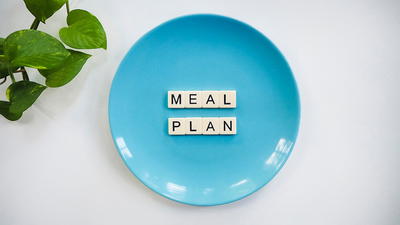5 Ways to Plan Ahead for Weight Loss
It may sound a bit ‘cliched’ but losing weight is a way of life. Unlike other lifestyle choices- with weight loss you get the benefit of changing many different aspects of your life. Your love life, and general well being can all be directly affected by adopting a new attitude and commitment to healthy living. Now considering how much there is to be potentially gained from adopting a routine of healthy living- it is surprising how many people fail to make even the most basic preparations.
You see the thing is, if you think that you can just make wholesale changes to your lifestyle with out any thought or preparation then the chances are you have not weighed Up the full implications of what you are getting yourself into. So many people quit a weight loss routine after the first couple of weeks because they have no proper structure to refer too. The truth is that through planning ahead not only do you stand a better chance of losing weight in the long term , but you also are more likely to lose it quickly and more healthily.
So where to start:
- Get a journal or large diary planner
At the start of your journal you should have a few simple statistics that show your starting point. These should include your weight, height, and your body mass index or BMI. If you don’t know already- your BMI gives you a reference of whether you are a healthy weight for your height. The start of your journal should also include any information you have been given by doctors or other experts you may have consulted prior to your weight loss routine.
- Visit the doctor
A visit to a doctor is a good way to begin any weight loss routine because not only van they give you an accurate assessment of your current weight levels, but can also record other important physical conditions such as your blood pressure. If you have gone the extra step of investing in persona trainer then any notes you have made form your meetings with them can be placed in your journal as well.
- Make a Goal
There is one other thing your journal needs to contain at the beginning and that is a goal. With your visits to the doctor and knowledge of your BMI you should now have a pretty clear idea of what your ideal weight is. On top of your main goal you should also be thinking of dividing that up into smaller weekly or monthly ones. This will help to keep your focused throughout the weeks and months of your routine and enhance your sense of achievement throughout. You can take this even further by putting reward days into the planner to act as an extra bit of motivation.
By breaking your routine down into a series of short term goals you will have more fun and experience a greater sense of accomplishment along the way. Of course this will only work if you are honest and open with yourself. Your journal should never lie otherwise you are only telling lies to yourself and defeating the object of your goal.
- Find Out As Much Information as Possible
You see the cool thing is that your journal can make your weight loss routine become your own mini project. The more interest you are able to show in what you are doing the less it will seem like effort. Try to broaden your knowledge of losing weight by collecting as many snippets of information as possible. Turn the first few pages of your journal into a scrapbook of relevant information. Remember this journal should represent your own personal journey so fon’t be afraid to be creative. Include pictures of how you look at the beginning and take more throughout the weeks of your routine.
- Remember, This is About You!
Finally the key thing to remember is that your journal is about you and nobody else. Your plan should be customised according to your own personal set of requirements and informed judgement. The effects of this are that you will be proving to yourself that you can take control of your own destiny. With a clear structure in place you wiull never lose focus of the task in hand. This will help to avoid the feelings of helplessness and submissiveness that can happen to people who feel like they are not in control of a situation.









